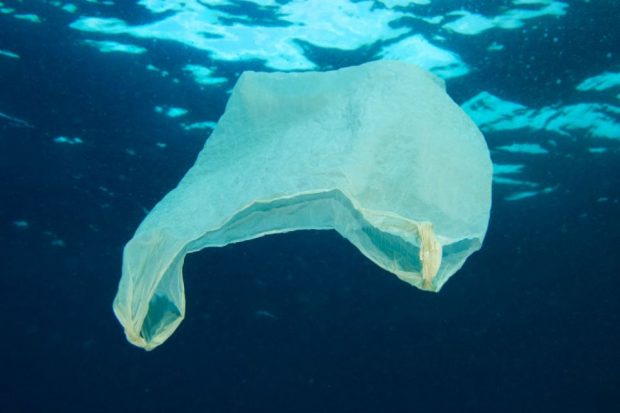Plastic waste overseas

There is coverage today including on the front page of The Telegraph, as well in as Daily Mail, i (p.6), Guardian, and Daily Express of a report from charities Tearfund, Fauna & Flora International and Waste Aid on the problems plastic pollution can cause for developing countries, as well as having consequences for the environment. Writing in the i newspaper, David Attenborough said that plastic in the sea is a "global problem" that demands a response on a global scale.
The UK is committed to being a global leader in tackling the issue of plastic pollution. In December 2018 we published our Resources & Waste Strategy, which sets out the government’s approach to eliminating plastic waste and moving towards a more circular economy.
A government spokesperson said:
The UK Government has committed up to £70 million tackle plastic pollution, including boosting global research and helping developing countries find new ways of collecting and recycling plastic waste to avoid it ending up in the oceans.
The Environment Secretary has also been clear we must handle more of our plastic waste at home, and our landmark Resources and Waste Strategy will boost our domestic recycling market and put tougher controls on the waste we do have to export.
This will build on the success of our 5p carrier bag charge which has taken fifteen billion plastic bags out of circulation, our ban on plastic microbeads in rinse-off products and our plans to introduce a deposit return scheme for single use drinks containers.
Following a call for evidence, the government is also acting to tackle the problem through a world-leading new tax on the production and import of plastic packaging with less than 30% recycled content. Together with wider government action, these measures will address the low recycling rates for plastic, encourage plastic packaging producers to use more recycled plastic and help lower the amount of problematic, rarely recycled items that often end up in our natural environment.
Where export markets or domestic reprocessing are not available, operators must manage waste to minimise the environmental impact as fully as possible and follow the waste hierarchy. This requires operators to ensure that where waste cannot be prevented or reused it is recycled where practicable, before considering energy recovery through incineration or the last resort of disposal to landfill.
There is a legitimate export market for plastics, particularly for countries that manufacture new products out of recycled plastic waste.
Instant fines for repeat offenders who leave their car running
There was front-page coverage in The Times this morning reporting the Environment Secretary’s support for Westminster City Council’s call to be able to fine drivers, without warning, if they have a record of being caught with an idling engine. This was also picked up in the Mail, the Sun and online on the Guardian.
Mr Gove said in an interview with Ben Webster, the Environment Editor at The Times, that it was important to ensure new powers were used proportionately by councils, but that instant fines should be considered as a solution for repeat offenders. Currently there are fines in place if the driver ignores a warning and continues to be idle for at least one minute. This fine is £20 or £80 depending on the regulations the local authority uses to enforce the law.
The article is the latest in the Times’ Clean Air for All campaign.
The Department for Transport has provided further comment:
We are determined to reduce the damaging environmental impacts of drivers who keep their engines running while stationary, especially those in school zones. This is why we are making guidance for local authorities clearer, so that they know how and when to target drivers falling foul of the law. We will be polling local authorities to understand how any potential review of these powers may look in the future.
1 comment
Comment by Jacqueline F. Wall posted on
Idling engines is one of my personal pet hates. I pass a local Spar shop on foot most days with my dogs and some vehicles are parked in the road or on the forecourt with their engines running - the driver is clearly waiting for their partner having popped into the shop... I really want to tap on the window and say "turn it off!!"..... but I know I'll probably receive a mouthful of abuse, so I don't. How are roads outside small busy shops like this going to be policed for idling engines? It's even more difficult as this is rural Cornwall, but with all the house-building going on, generating even more vehicles and soon to be a Suburb of London... (joke), we need idling engines to be killed off here too.